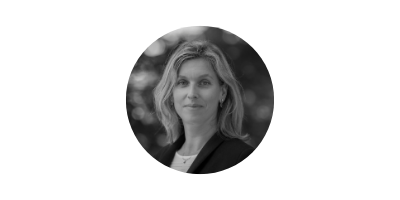Meet the Member: Hélène Carvallo, Attorney
In our latest Meet the Member feature, we had the opportunity to speak with Attorney, Hélène Carvallo. Hélène joined the FACC-NY in October, but has been a NY resident for over a decade. As an attorney admitted to both the NY and French bars, she puts her expert knowledge of both systems to benefit the clients he represents.
Keep reading to learn more about her background and her focus on Family Law and Estate Planning...
FACC-NY: With expert local and international knowledge, HELENE CARVALLO, ESQ. provides top-tier advice and client service. Is there one sector you find particularly challenging or one who could benefit the most from the expert counsel from HELENE CARVALLO LAW FIRM?
In general I note that my clients lack an understanding of the U.S system and culture, and consequently, they either think the process will be much easier than it is, or they do not see the complications where they are. For example, French people often believe that, if their whole family holds French citizenship and has no specific link with the U.S. expect for their current residence, which may or may not be temporary, their personal issues will be managed by a French judge handling French laws. They often get extremely surprised when they realize that, once their family unit is in peril, or upon their death, the way their case is handled will have little to do with French laws.
FACC-NY: Do you prefer the French or American legal system? Please explain.
This is a very tricky question. Maybe a better way to answer is to highlight what I like and do not like in each of those systems.
In the U.S. system, what I find extremely positive is the system of trial, with examination and cross-examination of witnesses. This is something that does not exist under French civil law, and I find it extremely efficient in terms of truth/fact-finding. I also ask like the fact that attorneys consider themselves as officers of the court, and as such, responsible with a certain level of honesty and truth before the judge.
However, this whole system is pervasive because of its cost. Only the rich people can afford it, although there are some associations for destitute persons. So many people are compelled to settle on bad terms just because they cannot afford the legal fees. The perversion of the system is really something I regret.
In France, I like the fact that a judge may take a decision quicker, although such decisions will be made after only a few minutes in court. The judge will look at all types of evidence, since almost everything is acceptable and will help the judge take a decision on the matter. I regret that French judges are trained separately than attorneys, because it creates a gap among those professionals, who sometimes consider themselves as opponents.
FACC-NY: What is your biggest takeaway from working with both French and American clients?
The culture difference creates a lot of misunderstandings. This is true, both within the marriage, or, when a marriage ends, when faced with the judicial system and attorneys. American people are much more assertive than French people when it comes to being in court, assessing their rights, and presenting their part of the story. Since they are young, they are taught to express themselves with confidence and consider that whatever they want to express is valuable.
This is the opposite of French culture, where there is a tendency to only express your views once you have been acknowledged as an expert, or at least knowledgeable, in a specific field. For this reason, many French people will not dare to express their thoughts unless they are based on something that legitimizes their value.
FACC-NY: Can you tell us more about your background and how long you have been in New York City?
I studied law in France and started my career with non-governmental organizations. I worked with women and children in Yemen, the Philippines, French Guyana and Togo. This led me to receive a wonderful sponsorship from the Rotary Peace Organization. Through this program, I spent 2 years at UC-Berkeley. Those years were amazing, California is such a dreamland. After I completed my LL.M (a US masters in law), I passed the New York Bar and came back to France to work as a Family and matrimonial lawyer. This united law with my personal interests towards people. A few years later, my husband was offered a relocation to NYC. We thought let’s do it!, and here we are.
FACC-NY: What were some challenges you faced in your career this year due to the pandemic? How did you address them?
The most difficult thing has been to deal with the children and the work at the same time. But hopefully, everyone has been understanding in those strange times.
FACC-NY: What led you to developing a specific focus and expertise in cross border estate planning and inheritance cases?
Although initially estate planning was not my primary focus, a lot of clients contacted me in regard to cross border estate planning questions. I started getting involved on those matters, followed extensive training, met amazing and competent professionals, both in the U.S and in France.
FACC-NY: What convinced you that being a part of the FACC was a smart choice to help develop and grow your business?
FACC seems to be a great platform for both French and U.S. professionals. Also, as a consequence to the pandemic, e-meeting is made easier and more natural than it ever was in the past, which is exactly what I need today.
Interested in connecting with Hélène? Log into the FACC Member Directory to send her a message.


